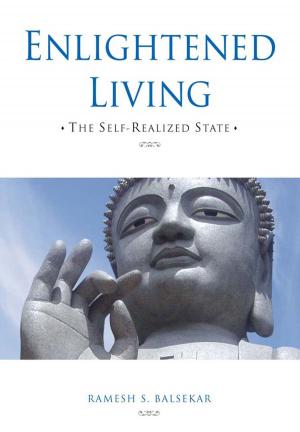Ramana Maharshi Upadesa Saram
Nonfiction, Religion & Spirituality, Philosophy, Eastern, Inspiration & Meditation, Spirituality| Author: | Ramesh S. Balsekar | ISBN: | 9789384363864 |
| Publisher: | Ramesh S. Balsekar | Publication: | May 20, 2015 |
| Imprint: | Smashwords Edition | Language: | English |
| Author: | Ramesh S. Balsekar |
| ISBN: | 9789384363864 |
| Publisher: | Ramesh S. Balsekar |
| Publication: | May 20, 2015 |
| Imprint: | Smashwords Edition |
| Language: | English |
Ramana Maharshi composed The Essence of Spiritual Instruction in response to the supplications of the devoted Muruganar. The poet-devotee was writing in Tamil the story of the wayward rishis of Daruka forest who were practicing special rites for attaining powers they desired. Their egos deflated by Siva, and perceiving the error of their approach, they humbly sought spiritual instruction from Siva. Siva graciously bestowed the instruction, and it is these teachings that Muruganar requested Sri Bhagavan, Siva himself, to reveal in verse form. So, the Maharshi composed thirty verses in Tamil. Later, Sri Bhagavan translated them into Sanskrit. The Tamil version is titled Upadesa Undiyar, and the Sanskrit version is entitled Upadesa Sarah and is also referred to as Upadesa Saram.
This work is the English translation and interpretation of the Sanskrit Upadesa Saram. It presents the quintessence of spiritual instruction.
Ramana Maharshi composed The Essence of Spiritual Instruction in response to the supplications of the devoted Muruganar. The poet-devotee was writing in Tamil the story of the wayward rishis of Daruka forest who were practicing special rites for attaining powers they desired. Their egos deflated by Siva, and perceiving the error of their approach, they humbly sought spiritual instruction from Siva. Siva graciously bestowed the instruction, and it is these teachings that Muruganar requested Sri Bhagavan, Siva himself, to reveal in verse form. So, the Maharshi composed thirty verses in Tamil. Later, Sri Bhagavan translated them into Sanskrit. The Tamil version is titled Upadesa Undiyar, and the Sanskrit version is entitled Upadesa Sarah and is also referred to as Upadesa Saram.
This work is the English translation and interpretation of the Sanskrit Upadesa Saram. It presents the quintessence of spiritual instruction.















